[ad_1]
Israel is a very controversial country, guaranteed to raise tensions and emotions, regardless of your political views or religious convictions. War and political turmoil have been the norm here for thousands of years, so traveling to Israel can be a little intimidating. But if you know what to expect, you’ll have a great experience when visiting Israel. In this post I will give you some travel tips that will help you better understand Israel and make the most of your visit here.
Essential Travel Tips for Israel
If this is your first time in Israel you probably have many questions on your mind. So did I when I started planning our trip. And although I tried to inform myself the best that I could, there were still a few things that caught me by surprise when I arrived. Therefore I decided to put together a list of tips and useful information for traveling to Israel.
Planning to visit Jordan while you are in Israel? Read these useful travel tips for traveling to Jordan.
This guide will cover some of the most common questions asked before traveling to Israel. Like what to expect, when is the best time to go, or what costs are involved. So here is what every visitor should know before going to Israel.

1. Getting acquainted with Israel’s history really helps
One of the biggest travel mistakes people make when visiting other countries is not getting themselves acquainted with the local history. Of all the travel tips that I’m about to give you, this is perhaps the most important one: learn a little about Israel’s history!
The archeological sights in Israel are not particularly impressive, unless of course you know what you are looking at. Unlike the pyramids of Egypt that will impress regardless of how much you know about them, in Israel you’ll encounter places infused with religious and historical meaning that will make no sense to you unless you know their history.
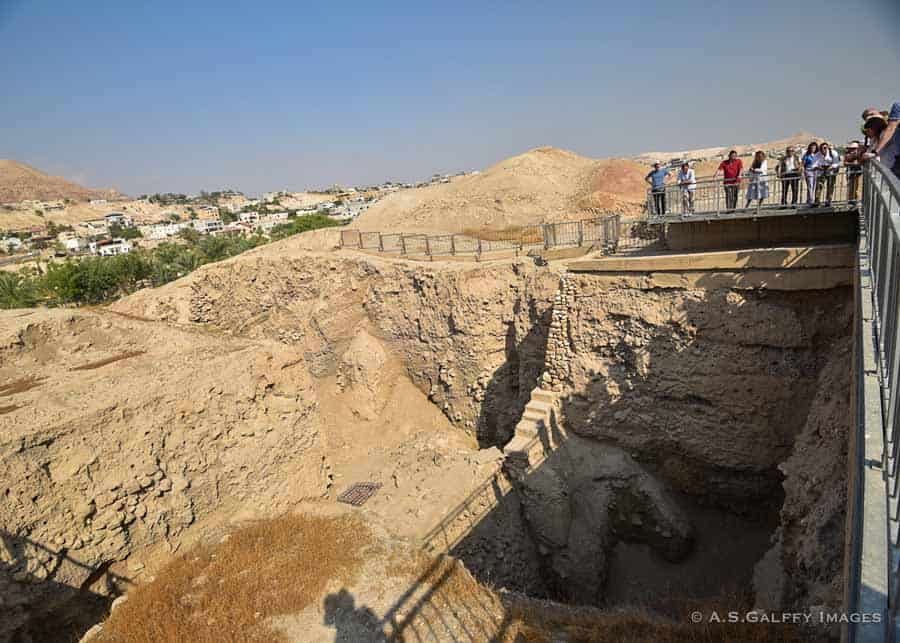
Israel’s history goes back to ancient times and much of what we know about it comes from the Hebrew Bible. According to it, Israel’s origin starts with Abraham, who is considered the father of both Judaism (through his son Isaac) and Islam (through his son, Ishmael).
Although the Land of Israel was occupied by many nations over the centuries, the Jewish people have always been a physical, cultural, and religious presence here.
2. Food is really good
Food in Israel is extremely diverse and generally very good. A well known favorite is falafel – small fried balls of mashed chickpeas, usually served with pita bread and humus.
There are many other Middle Eastern and Arabic dishes whose names I can’t even pronounce, but they are good. Kosher refers to the food that complies with the standards of the Jewish law (for instance, pork and shellfish are not kosher).

Do try all the food in Israel! The worse that can happen is that you won’t like it. For those less adventurous, there is also regular Western style food available. Alcohol is available at many hotels and restaurants, but is rather expensive.
Street food is safe to eat in Israel, but I would stat away from fresh fruit and produce that I didn’t wash and prepare myself. Exercise caution even with cooked food. If it doesn’t look or smell right, don’t assume that’s how it’s supposed to be. Just don’t eat it.
3. Everything in Israel is expensive
Israel is an expensive country to visit. Almost everything here costs a lot: hotels, food, entrance fees, clothes, electronics, etc. Basically you pay more for the same commodity than you would pay in other parts of the world. Besides that, they have a huge sale tax of 17% that is applied to most goods and services. A trip to Israel will cost you a lot, so be prepared for that.
One thing I noticed is that speaking English will make prices go a little higher that they actually are.

You can exchange money almost everywhere in Israel. The exchange rate for the US Dollar is currently around 3.5 – 3.7 Israeli Shekel, but of course this will vary according to the time of your travel.
4. Prices are negotiable
Bartering I one of the most important tips for people who travel to Israel. Learning to bargain will save you not only money, but also a lot of frustration. Exactly like in Istanbul, where you don’t walk into the Grand Bazaar and pay the first price you are asked to pay, in Israel almost everything is negotiable.
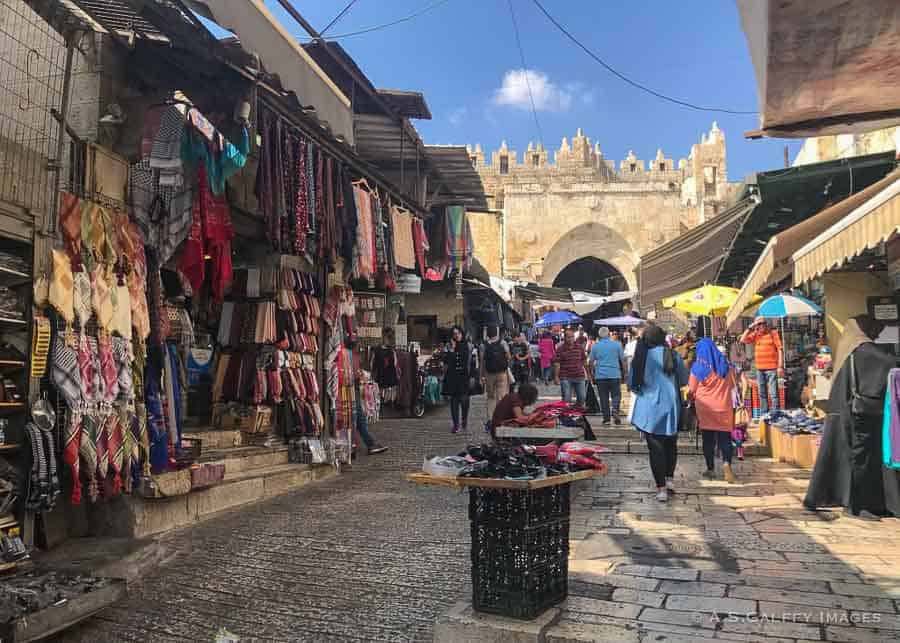
Israeli people expect to get a discount on all major purchases, so the listed price is calculated accordingly. Except for cars, almost everything else is open to negotiation. That’s counterintuitive if you are coming from the USA, where you can only negotiate the car or the real estate prices.
5. Renting a car vs. using public transportation
If you are not an expert driver with nerves of steel, don’t drive in Israel. Although roads are in good condition, getting in and out of any city is a nightmare! Leave alone driving in places like Jerusalem, Tel Aviv, or Haifa! Road signs are bad and traffic if always heavy.
Using planning public transportation on the other hand works really well. Bus schedules are set up very conveniently and the train system is simple and easy to use. It’s hard to get lost.
You’ll most like have to use Taxis in some situations, so be prepared to negotiate the price before you hop on the cab.
Hitchhiking is definitely not recommended in Israel, especially in the current political situation.
6. Tipping is not mandatory, but is expected
Tipping in Israel is discretionary but expected, similar to most of the Western world. Unlike in the USA, where you are expected to tip between 15% – 20%, in Israel the tip is between 10 -15%. The minimum is at least 10%, the average is 12% and maximum is 15% (for exceptional service).
Waiters and bartenders get a relatively low salary, so the majority of their earnings coming from tips. Tips are usually left in cash not on card, so it is useful to carry some small change with you.

Tipping the taxi drivers, hotel personnel and other people in the travel industry is not usually expected. However, they will not mind a tip if you decide to be generous.
7. English is spoken almost everywhere
Unlike in Morocco, where English is rarely spoken, in Israel is widely spoken. The country’s official language is Hebrew, but you’ll also hear Arabic, English, Russian and some other languages.
Although English doesn’t have an official status, most Israelis can speak it fairly well as it’s a required second language in schools. As such, you’ll be able to communicate in English almost anywhere you go. However, learning a few Hebrew words will put you ahead of the game in Israel.
- Shalom – is used as a salutation, but it actually means peace
- Bevakasha – please
- Slicha – sorry/excuse me
- Boker Tov – good morning
- Erev Tov – good evening
- Mazel Tove – congratulations/good luck
- Toda/Toda Raba – thank you/thank you very much
- Lehitra’ot – good bye/see you later
8. Israel is really small
It’s surprising to discover how small Israel really is. The total area of the State of Israel is 22,145 square kilometers (8,630 square miles), just slightly bigger than the state of New Jersey. Getting from one end of the country to the other doesn’t take long, which means it’s very easy to take day trips. You can use either Jerusalem or Tel Aviv as a base for exploring the important sights in Israel.
9. Everything closes down on Shabbath
If you are not completely ignorant about the Jewish religion, you’ve probably heard about Shabbath before. Sabbath (or Shabbath) is Judaism’s most distinctive practice – a 25-hour celebration that starts at sundown on Friday and ends after sundown on Saturday.
In Israel Shabbat is more than just a day off from labor. It’s a unique and special time of physical respite meant to be spent with family and loved ones or for worship, if you are a religious person.
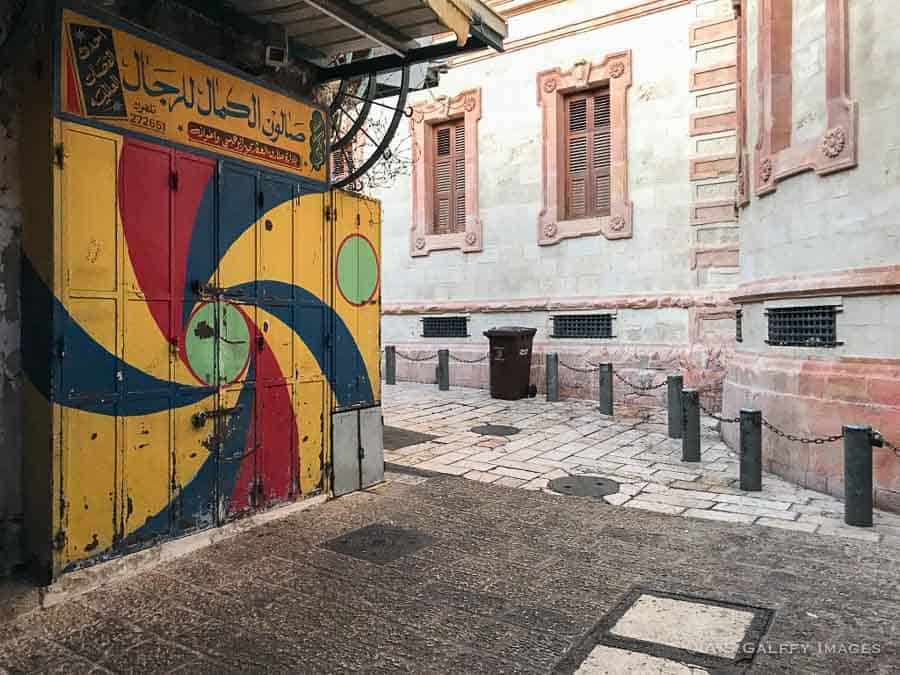
Wherever you go when you travel in Israel, make sure you get there before 4 o’clock on Friday. On Shabbat all public services are closed (except for emergency ones). There are no train and no busses working.
10. Religious Holidays are very strictly observed
Traveling in Israel during any of the Jewish holidays can be a very frustrating experience for a tourist. Especially for those of us living in America, who became so accustomed to 24 hour open stores!

In Israel religious holidays are very strictly observed. Most places close down, including restaurants, cafés and public transportation. On Yom Kippur (the Hebrew Day of Atonement) everything closes down. Even Ben Gurion International Airport! No one drives on that day, and the roads are completely empty. So be prepared to do nothing on this day if you are in Israel.
11. Jerusalem is Dead on Weekends
If you are not religious and you are a tourist for which every single day counts, don’t stay (or travel to) Jerusalem on weekends. From Friday night to Saturday night everything closes down in Jerusalem, so there is not much you can do here.
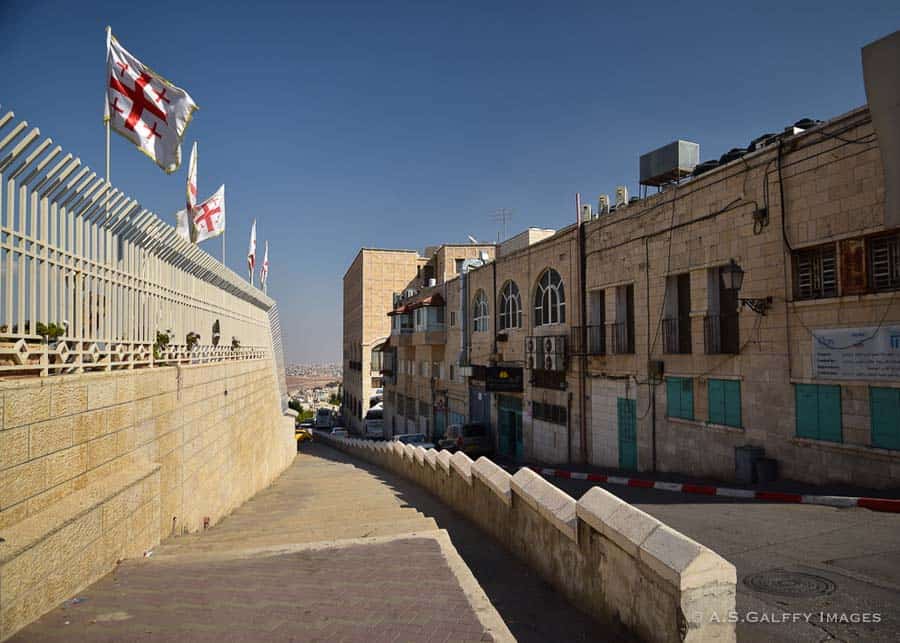
Instead, plan to go to a more secular place like Tel Aviv or to Haifa, where everything stays open on weekends.
12. There is an obvious military presence
You are going to be seeing a lot of armed soldiers while visiting Israel, so don’t be alarmed. The presence of barbed wire and armed soldiers is nothing new in this country that has been in political turmoil for so long.
Despite the many frictions in the region, Israel is a pretty safe country to visit and the weapons you see are there for defensive purposes.

Not all the soldiers you’ll come across are on active duty however. Some are young people doing their military service. Army service is mandatory in Israel. Both girls and boys are drafted at 18 and serve a minimum of two years.
13. Getting in and out of Israel is a lengthy process
Border control is way lengthier and more thorough in Israel than in any other countries we visited so far. You’ll need to get an Israeli passport stamp, so the best advice I can give you is to arm yourself with patience when traveling to Israel.
When entering Israel you have to answer a series of routine questions (why are you there, how long will you stay, etc. etc. If you don’t look suspicious the process will be very smooth. But if you have passport stamps from certain Muslim countries (such as Iran, Lebanon, or Pakistan), you’ll have to go through a special interrogation process that will take quite a while.

Israel no longer stamps your passport on arrival, which is good news if you plan to visit other countries in the Middle East for which an Israeli visa may be a problem. Instead, you’ll get your visa on a piece of paper which you need to keep this safe, as you’ll need it for your departure.
You may expect an even lengthier process as you are leaving Israel, so plan to be at the airport at least 3 hours before departure. At the Security Check they will ask you to open your bag of electronics and they will check each and every one of them.
Practical Travel Tips for Israel
14. What’s the best time to travel to Israel
Deciding when to go to Israel depends in large part to what you are interested in doing while you are there. While there is no wright or wrong time to go, there are however a couple of things that you need to consider when planning your trip: climate and Jewish holidays.
There are basically two seasons in Israel: summer (April to late October) and winter (November to March). Summers are hot and humid in Israel, bur rain free. Winter starts when it gets from cool to cold and it begins raining). Generally it doesn’t snow in Israel, except for the mountain areas in the Golan Heights.
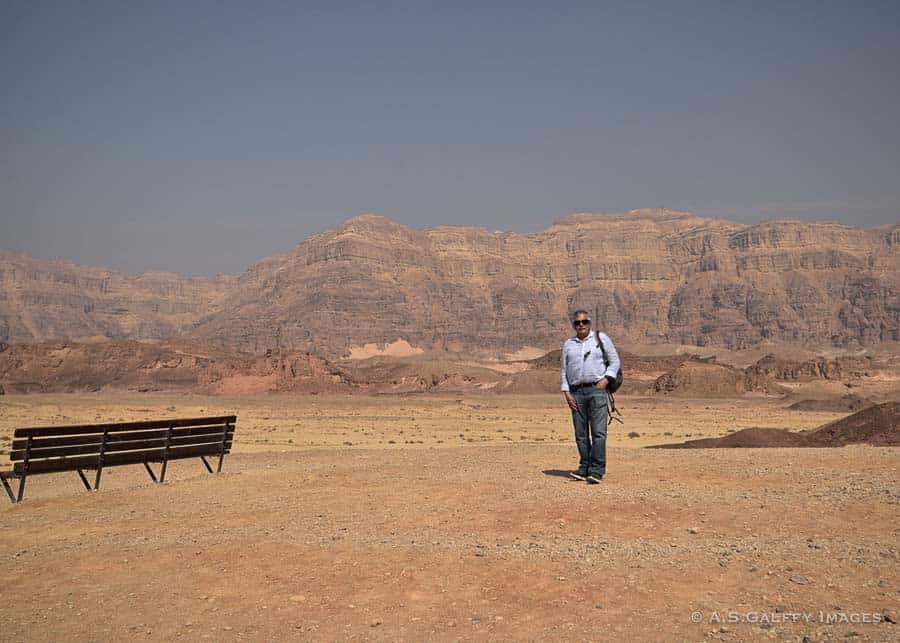
Another important tip to consider when you travel to Israel are the Jewish holidays. In Israel there are two calendars: the Gregorian calendar and the Jewish calendar, but most religious holidays are based on the Jewish calendar.
Even though it’s interesting to be in Israel during some of these holidays, you’ll have to remember everything closes down during that time: public transportation, banks, stores, etc. Also, hotel prices will be much higher.
15. What to pack for Israel
When traveling to Israel it’s important to be conscious of what you wear. While places like Tel Aviv, Jaffa, or Haifa are more open-minded and fashion-forward, in cities like Jerusalem modest clothing is recommended. Don’t bring tank tops, shorts or anything above the knees.

With very few exceptions, just about everything you would pack for Europe you can pack for Israel as well. As a general rule however, think convenience before fashion. Here are a few tips on what to pack when you travel to Israel:
- A scarf and a long-sleeve top, if you are a woman and plan on visiting the religious sites. Some sites may provide a cover up, but it’s better to have your own.
- Light-weight clothing is the best for summer months. We traveled here in mid October and the temperatures were above 30ºC and very humid.
- A light jacket and some sweaters for colder months.
- Comfortable shoes are a must in Israel, especially in Jerusalem.
- Hat, sunglasses, sunscreen lotion. You won’t be able to get by without them in this torrid sun.
- Wet wipes, small roll of toilet paper, hand sanitizer. Carry some in your pockets at all times. Many times the public toilets will not have toilet paper or soap.
- A small umbrella. Rain may come totally unexpected in Israel, but it usually stops just as sudden as it started.
16. Is it safe to travel to Israel?
Israel is overall a pretty safe country. However, considering its fast changing security situation, it’s important to exercise a some caution when traveling to certain areas, like East Jerusalem, or the West Bank cities of Bethlehem, Jericho and Ramallah.
If you want to visit the West Bank, I would advice hiring a cab from the Muslim quarter in Jerusalem, or booking an organized tour. Many cab drivers in the Muslim Quarter of Jerusalem will offer to take you to the West Bank, but I’m not sure how safe that is. If you are not in an organized group, you may have issues at the border.

One thing to be mindful in Israel is that authorities are always on high alert. So don’t leave your purse, camera, or anything else unattended. People will assume it’s a bomb and the bomb squad will come and search your purse and interrogate you.
17. What plugs to pack for Israel
The standard voltage in Israel is 220 volts and 50 Hz. The primary socket is type H (plugs with three pins in a triangular shape), so you’ll need a Power Adaptor Type H. In many hotels you will probably also find the C type sockets (two pins, like in Europe).
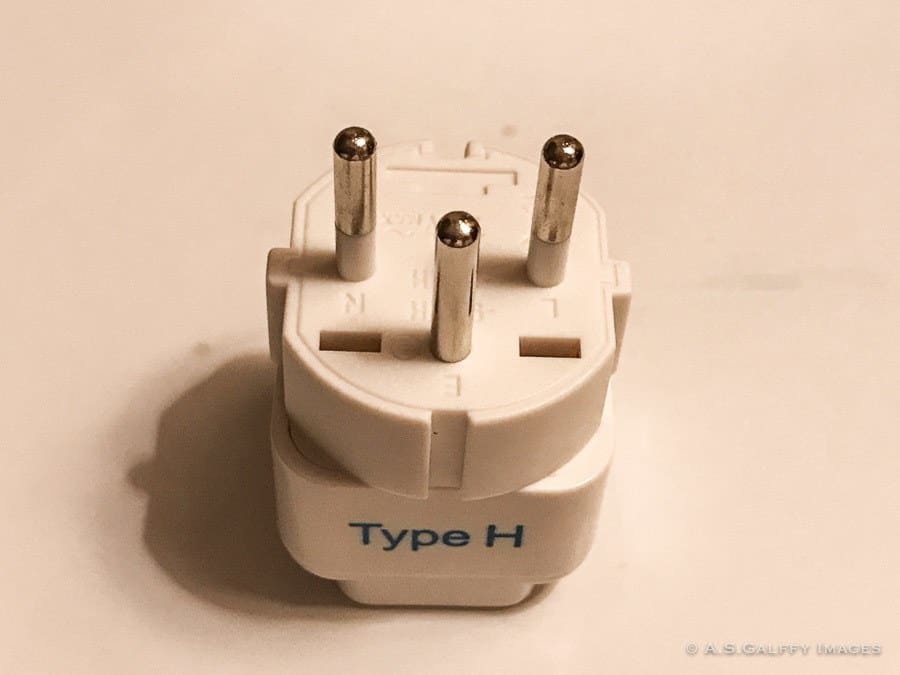
If you are coming from the U.S. you’ll need both a plug adaptor AND a voltage converter. Coming from Europe or other countries that have 220-230 voltage systems, you’ll only need a plug converter. Most modern devices such as mobile phones and laptops have a built-in converter, but it’s safer if you bring a voltage converter as well.
18. Is WiFi widely available in Israel?
WiFi is widely available throughout Israel and is usually offered free of charge in most hotels, restaurants, cafes and bars. Some small hotels may charge for Internet though.
19. Are drones allowed in Israel?
Technically, yes. However, there are very many restrictions and you’ll need a permit for using it. Also, like everywhere else in the world, you won’t be able to use your drone in places that are of interest.
If you want to bring your drone to Israel, my advice is to register with the Aero Club of Israel and get a permit. They will provide you with a map of the places where you can fly, and also give you with up to date information about their rules and regulations.
20. What time zone is Israel on?
Israel is 2 hours ahead of Greenwich Meantime (GMT). Daylight Saving time starts on the Friday before the 02 April. The move back to standard time can take place in late September/early October according to the Jewish calendar (between Rosh Hashanah and Yom Kippur.)
NOTE: As of June 30, 2023, NO Covid-19 test or proof of vaccination is required for tourists entering Israel.
Did you find this information useful? Pin it for later:

[ad_2]
